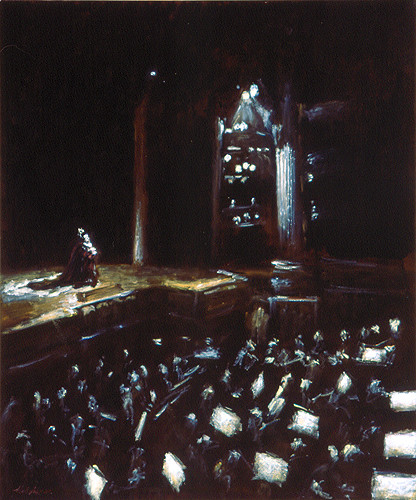I remembered that ten years ago, when I traveled from Rome to Florence, I had an "argument" with a fellow traveler, an old working-class Italian, about the merit and worth between Verdi and Puccini. I hardly spoke Italian and our "conversation" started when he mentioned a lake (lago) to me and I remembered the word lago in Rossini's opera La donna del lago. I valued Verdi more and he Puccini. It was a hilarious moment because we could only communicate by hand gestures.
In the US, Puccini is universally loved, while Verdi, perhaps more revered. His dramas speak about universal human conditions, often combined with world-weary resignation. His last opera, Falstaff, summarized that life was a jester. Puccini concentrated on the life of little one, "real" figures whose feelings can be easily identified amongst ourselves. The concerns are immediate and personal.
Years ago, I read an article comparing Verdi and Puccini in the US and Italy. The article confirmed that Puccini tramps Verdi in the US but in Italy, Verdi's supremacy over Puccini is unchallenged. The author claimed that he had conducted a broad survey there and all valued Verdi over Puccini. I guess I must have met the singular exception on my train.
The American love affair with Puccini is considered curious in Italy, where the composer is usually ranked in the second tier of native opera composers (along with Rossini, Donizetti and Bellini) under the colossus that is Giuseppe Verdi. Puccini is in fine company in the second tier and is certainly more admired than the likes of Mercadante, Salieri, Paisiello, Cherubini, Cilèa, Boito, Leoncavallo, Giordano and Puccini's teacher, Ponchielli.I also remembered another article on Verdi, which described him as a man concerned with human conditions in general terms, paid close attention to politics and realized that his desire to change the world for the better was doomed. Yet, his Sisyphean effort despite knowing its doom was what made Verdi heroic.

Limelight © Matthew Felix Sun





No comments:
Post a Comment